Sleep Series pt. 2 | Everything you Need to Know About Sleep Stages
Welcome to Part Two of our Sleep Series! After covering the basics of sleep in our previous article, it's time to delve into the fascinating world of sleep stages and how they can impact our sleep quality. This is an exciting era for sleep research, as sleep wearables and trackers are gaining popularity, and since many of us own a sleep tracker to measure sleep stages, it's important to explore this topic in depth.
Sleep Stages
In 1952, Sleep Scientist Nathaniel Kleitman conducted a study on infant sleep in his sleep lab. During his observations, he noticed distinct patterns in their sleep, including phases where their eyelids moved rapidly beneath their closed eyes and phases where there was no movement. This led to the identification of NREM (Non-Rapid Eye Movement) and REM (Rapid Eye Movement) sleep.
As more research on sleep has been conducted, we have gained a deeper understanding of why our bodies go through these sleep stages. NREM sleep consists of light and deep sleep, with most deep sleep occurring in the first 4 hours of the night and most REM sleep occurring in the last 4 hours. Both NREM and REM sleep are important, and it's recommended to aim for approximately 18-23% of our overall sleep time in deep sleep, 20-25% in REM sleep, with the remaining 50% in light sleep.
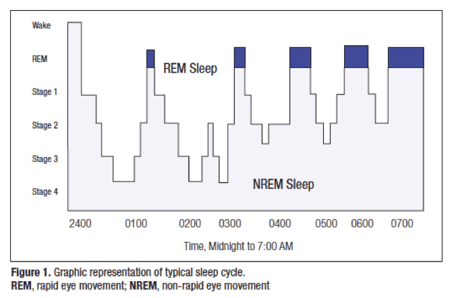
Light Sleep (NREM Stages 1 and 2)
NREM Stage 1 is the initial stage when we begin to fall asleep. During this stage, our body temperature drops, heart rate slows down, and muscles relax. Additionally, brain waves transition to a more rhythmic pattern. This stage typically lasts only a few minutes. NREM Stage 2 makes up the majority of our NREM sleep. In this stage, heart rate continues to slow down, and respiration rate decreases. It is relatively easy to wake up during stages 1 and 2 of NREM sleep.
Ideally, around 50% of our sleep time should be spent in light sleep. If more than 50% of our sleep is in the light sleep stage, it could indicate sleep issues such as sleep apnea. Although light sleep is often considered less important than deep and REM sleep, it does have its benefits, including memory retention and enhanced motor skills.
Deep Sleep (NREM Stages 3 and 4)
Deep sleep, also known as slow wave sleep and NREM Stages 3 and 4, plays a crucial role in repairing both our muscles and our brain. During deep sleep, our muscles are highly relaxed, and our heart rate reaches its lowest point. It is generally more difficult to awaken from deep sleep, and if we do wake up during this stage, we may feel groggy.
The benefits of deep sleep are numerous. It promotes muscle and bone repair/growth, facilitates brain detoxification, and aids in memory retention. During deep sleep, there is a significant increase in growth hormone production, which helps with tissue recovery. Additionally, cerebral spinal fluid levels rise, effectively washing away harmful toxins from the brain. Another important aspect of deep sleep is its role in transferring memories from the hippocampus (short-term memory storage) to the neocortex (long-term memory storage).
Factors that Inhibit Deep Sleep
Given the significance of deep sleep, it's important to understand how to enhance its quality. One of the main disruptors of deep sleep is consuming caffeine less than 6 hours before bedtime. As mentioned previously, caffeine blocks adenosine receptors, making us feel less tired. However, caffeine's half-life is approximately 6 hours, and its full effects can last for 10-12 hours. Even if you subjectively feel like you can sleep well after drinking coffee, your body and brain still miss out on the benefits of deep sleep.
Engaging in intense physical activity close to bedtime can also inhibit deep sleep. During vigorous exercise, our body temperature increases, which is contrary to what we need before sleep. To achieve quality sleep, especially deep sleep, it's crucial for our body temperature to drop by 1-2 degrees before and during sleep.
Another factor that can hinder deep sleep is consuming a large meal too close to bedtime. It is generally recommended to avoid high-calorie meals, especially those high in fat, at least 3 hours before sleep. Fat takes longer to digest and can affect sleep quality, particularly deep sleep. However, this may vary depending on the individual, so it's generally best to avoid heavy meals before bed.
Tips for Getting More Deep Sleep
Exercise plays a significant role in promoting tiredness. When we work out, adenosine triphosphate (ATP) is broken down into adenosine diphosphate (ADP), which helps build sleep pressure. Additionally, incorporating more fiber into our diet has been shown to increase slow-wave brain activity during deep sleep. Using a white noise machine can also be helpful. While it may take some time to get used to, a white noise machine can block out external noises, such as car sounds or pets, allowing for a deeper and more restful sleep.
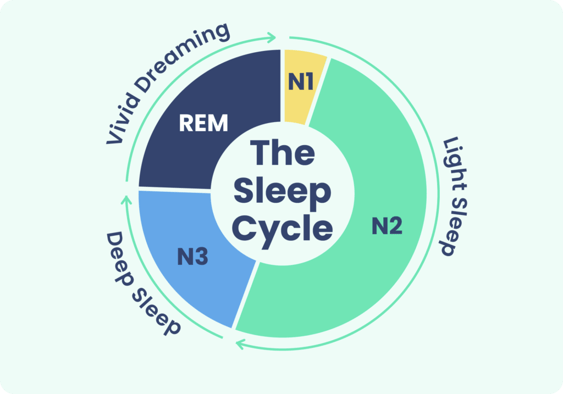
REM Sleep
REM sleep, also known as the dream phase of sleep, is characterized by increased heart rate and brainwave activity similar to being awake. During this stage, our bodies experience temporary paralysis, a protective mechanism to prevent us from physically acting out our dreams. REM sleep is unique to humans and is believed to have played a significant role in our evolution as a species.
REM sleep offers various benefits, including improved emotional control and emotional intelligence, increased creativity, and enhanced problem-solving skills. It enables us to better interpret verbal and non-verbal cues, such as facial expressions and body language. Getting an adequate amount of REM sleep allows us to have a better handle on our emotions. Moreover, REM sleep facilitates the formation of associative networks in the brain, enabling us to wake up with solutions to our problems.
Factors that Inhibit REM Sleep
One of the main culprits for a decreased amount of REM sleep is the consumption of alcohol and marijuana. Alcohol raises body temperature, increases heart rate, and reduces heart rate variability. This occurs because our bodies perceive alcohol as a toxin and respond by entering a more fight-or-flight state. If you do choose to drink, it is advisable to limit alcohol consumption to one day a week around noon, allowing the body sufficient time to metabolize it and avoid disrupting your sleep. Similarly, marijuana suppresses REM sleep while increasing deep sleep.
Tips for Increasing REM Sleep
Exposing yourself to more light in the morning and reducing light exposure closer to bedtime can help regulate your sleep-wake cycle, especially by blocking melatonin-suppressing blue light 1-2 hours before bed. I recommend using blue light-blocking glasses or smart bulbs that allow you to change the color of your lights to red before bedtime. Additionally, avoiding caffeine consumption 6-10 hours before bed is advisable, as it can interfere with both deep sleep and REM sleep. Creating a cool sleeping environment with a temperature between 65-68 degrees Fahrenheit is also beneficial, and wearing lighter clothing to bed can help regulate body temperature.
By understanding sleep stages and implementing these strategies, you can optimize your sleep quality and wake up feeling more refreshed and rejuvenated. Sleep well!
References:
JF; PAVK. Physiology, sleep stages. National Center for Biotechnology Information. Accessed June 1, 2023. https://pubmed.ncbi.nlm.nih.gov/30252388/.
Walker M. Why We Sleep. Scribner; 2017.
About the Author

Jacob Behara is a Human Performance Data Scientist at the US Army. Prior to working for the army, he spent the previous 3.5 years serving in similar positions with the Air Force Special Warfare Pipeline at the 351st SWTS and Special Warfare Candidate Course. During his time in the military Jacob has developed an affinity for sleep science and education based on objective sleep data from things like sleep wearables. Before Jacob transitioned into the tactical setting he was a strength coach with stops at the Houston Astros, Kansas City Royals, the University of Kansas, Stetson University, and EXOS. Jacob has a Masters in Exercise Science from Oklahoma State University and a Bachelors in Dietetics and Exercise also from OSU. Disclaimer: These views do not represent the views of the company Jacob works for, the army, or the Department of Defense
Related Posts
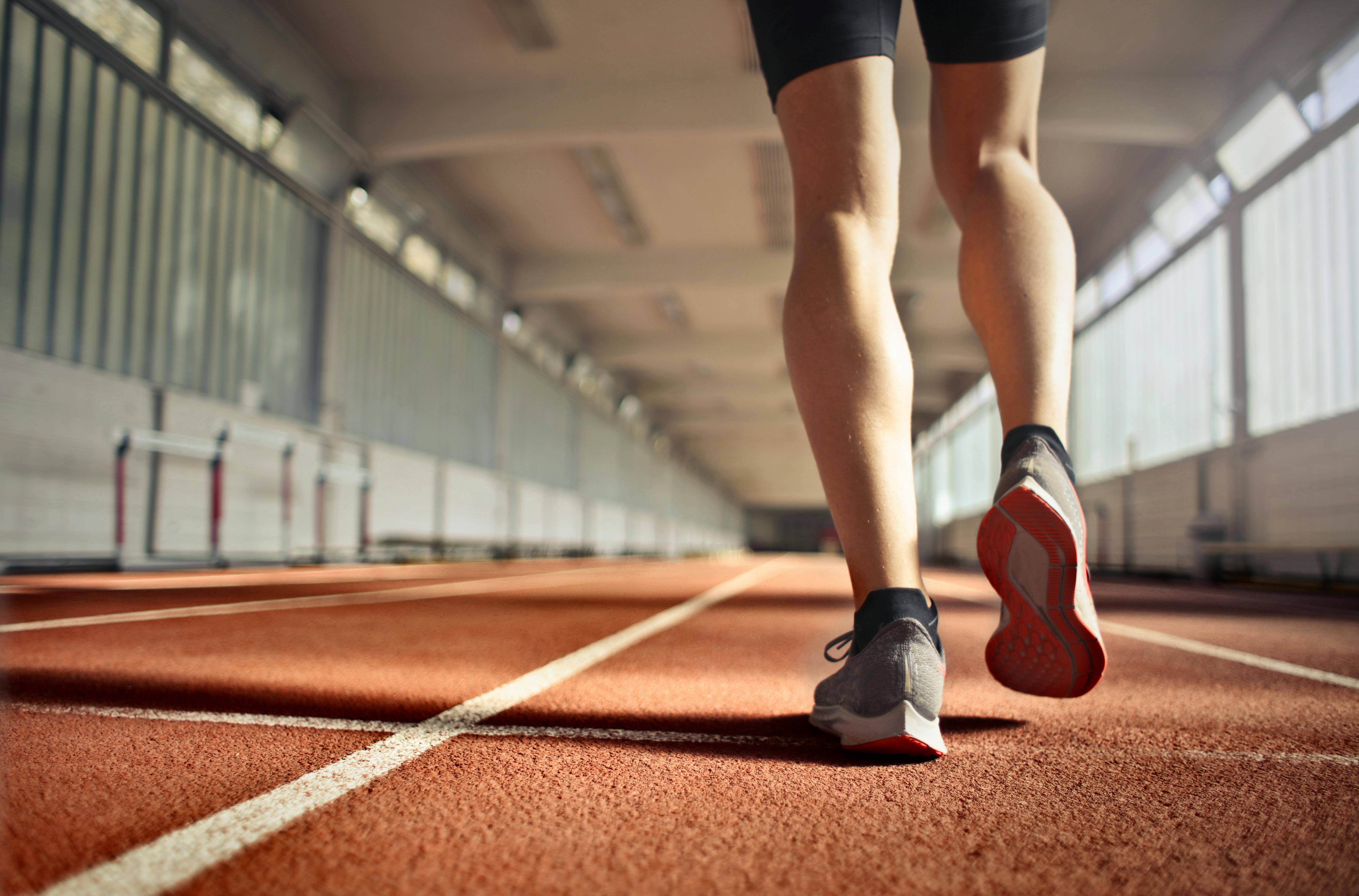
Exploring the Benefits of Retro-Walking...
Retro-walking (RW), or walking backward, is a therapeutic exercise used in resistance training...
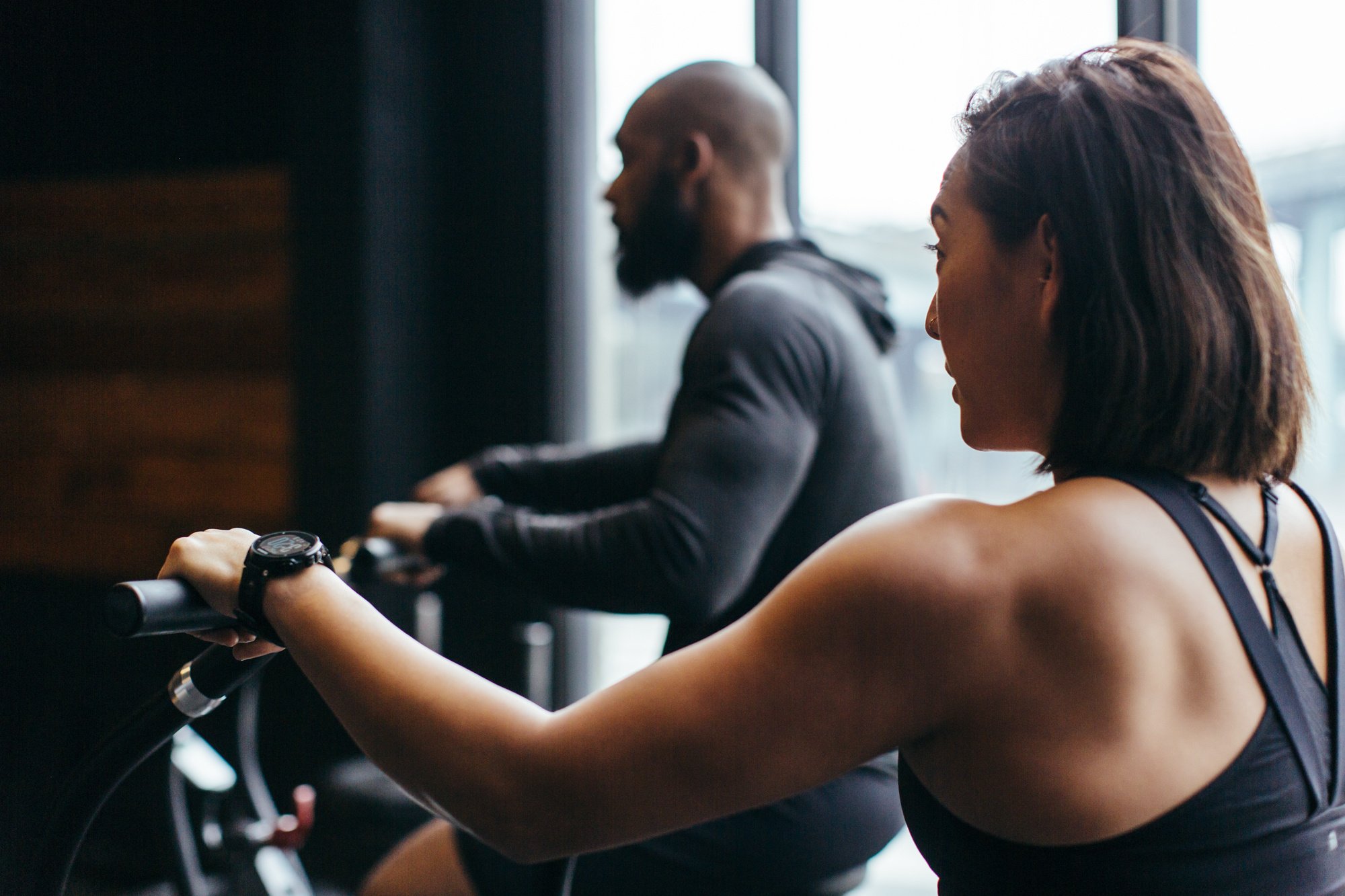
Understanding the Tapering Process: A...
As a strength coach and physiologist, I often get asked about tapering and how it fits into a...
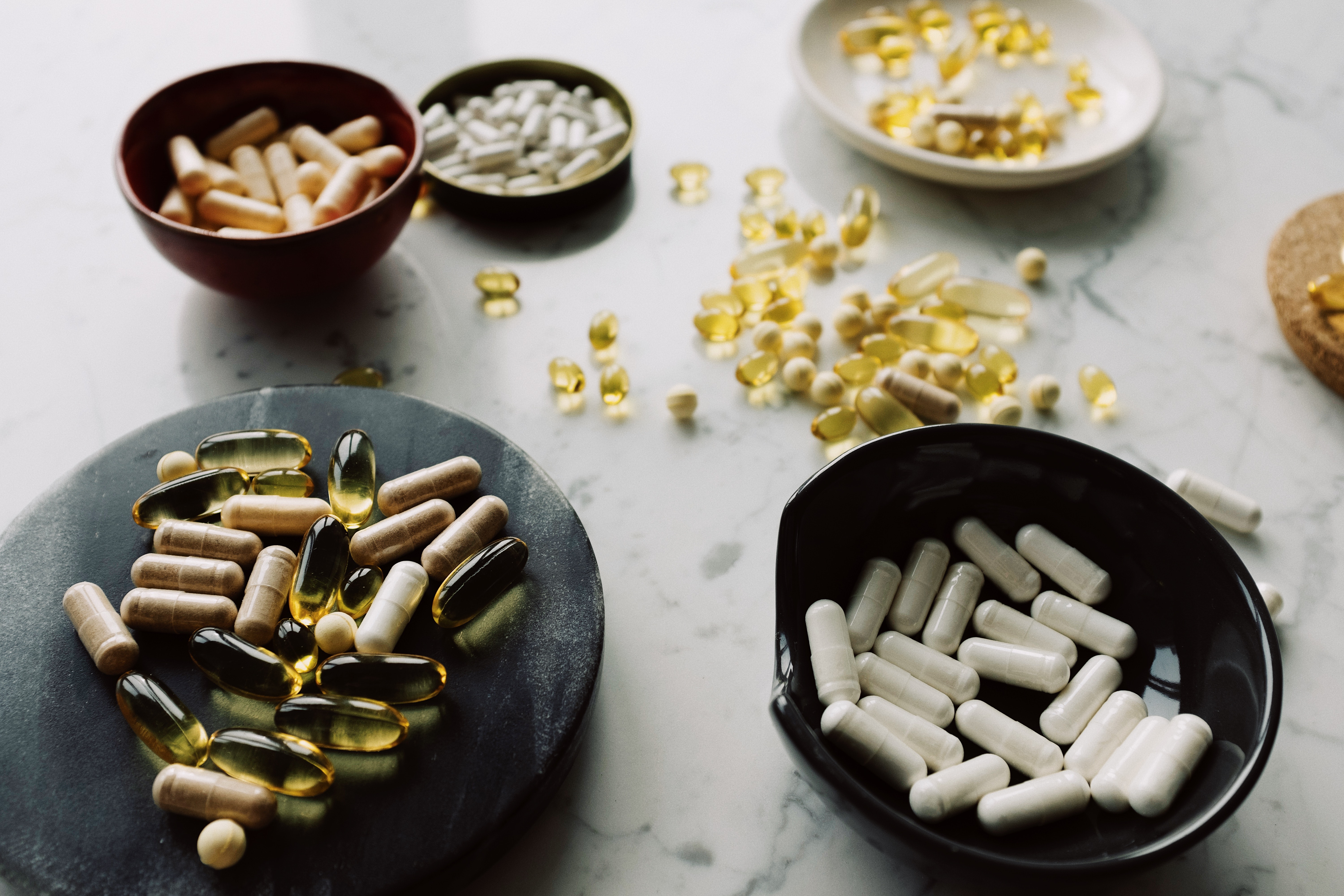
Supplement Safety with Tactical...
Dietary supplements seem like the "magic pill" a tactical operator needs to perform better,...



